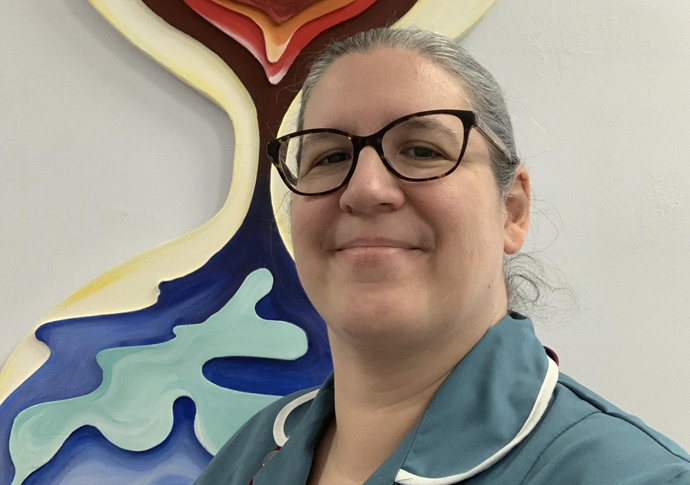‘With pregnancy loss, grief, and the journey that parents go on… it’s long’
Bereavement midwife looks back over two decades of offering compassionate advice service
Friday, 13th October 2023 — By Charlotte Chambers

Whittington bereavement midwife Jane Laking
IN the early days Jane Laking sometimes used to wake her young children up at the end of a long shift just to give them a hug.
“I did know how lucky I was,” the Whittington Hospital bereavement midwife explained, describing the sometimes tricky emotional fallout after a shift supporting parents who had lost their babies.
“They certainly got woken up after a long shift and kind of had cuddles and then got put back to bed. There were certainly moments where Mummy just needs a cuddle.”
Those days are past now, and her children are older, but 20 years ago, in 2003, it was all new. As one of the country’s first bereavement midwives, Ms Laking helped set up a bereavement midwifery service at the Archway hospital, offering grieving parents compassionate advice at the worst time in their lives.
Some things have changed immeasurably in two decades, she said, including the way early-term miscarriages are now regarded as potentially just as painful a loss as a full-term pregnancy, along with infertility – and the introduction of Baby Loss Awareness Week (BLAW), which runs until Sunday, and is a key part of promoting understanding among the public.
Ms Laking said: “For some ladies, sadly, this is a multiple thing that’s happened to them several times, and for some people, this is the first time they’ve ever known what grief looks like. Some parents may want to bathe their baby or take photos with them, she said. Others may want to take hand and footprint casts or a lock of hair.”
Ms Laking added: “People who’ve lost parents, siblings, they all come to it slightly differently. But I think with pregnancy loss, grief, and the journey that they go on, what it is, is long. And what tends to happen is people get lots of support in the first few weeks, and then people stop talking to you because they don’t know what to say. And it’s a really lonely grief.”
If you know someone suffering from baby loss, the worst approach you can take is silence, she warned.
While she admitted there was “no right word that will be curative” because “it’s not something that you get over”, saying nothing is “the worst thing” you can do, adding: “Because by ignoring it and pretending it didn’t happen, then all you’re doing is saying it wasn’t important.”
She recommended using a simple question to let them know “you are somebody who can listen”, such as “Would you like to talk about your baby today?” and advised to always use a baby’s name if you know it.
In the UK, pregnancy loss occurs in 1 in 4 pregnancies and approximately eight babies a day are stillborn.
Ms Laking said: “There are tough days when you cry all the way home but it’s an incredibly rewarding job to do because you go home and you know you’ve made a positive difference to the unit. We cannot give them what they want. And we cannot make their day positive, but we can make it a little less bleak than it was before.”
Plans for a £100m renovation of the maternity facilities – including creating two purpose-built bereavement rooms – are in the pipeline.
